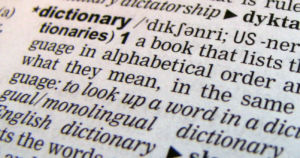
Review: Everything, Everything by Nicola Yoon
Everything, Everything starts out as a respectful, sensitive narrative with incredibly likable characters, but ends on a shockingly disappointing note in terms of disability representation.

Everything, Everything starts out as a respectful, sensitive narrative with incredibly likable characters, but ends on a shockingly disappointing note in terms of disability representation.

This book portrays its autistic protagonist in ways that will give readers negative, incorrect, and in some cases abusive ideas about autistic people.

Speculative fiction is work that focuses on difference, work that immerses us in it. But the choices we make when building a fictional world can reflect on the world that we live in now. So how do we worldbuild with disability in mind?

I can’t tell you how many times people have been dismissive or incredulous about my mental illness, simply because I don’t fulfill their preconceived notions about bipolar individuals.

Magic and technology often minimize disability in SF/F. How can authors meaningfully engage with disability and the ways that speculative elements can affect disabled characters?
Thanks for keeping up with us, and we hope you enjoy the series. One more day!

To help authors make informed decisions about what language to use, we talk about disability terminology–from outdated words and cringe-worthy phrases to straight-up ableist slurs, and everything in between.

I’ve talked a lot about the ways my disability has affected my body image, my sexuality, my confidence, and my social interactions, and all of those things are important to consider when writing a disabled character. Today, however, I want to focus on the ways my disability affects the logistics of my life.

The pain of being the butt of someone else’s joke comes back to me whenever I read fiction that depicts characters on the autism spectrum who repeatedly take idioms and other expressions literally, or fail to understand the double meaning of words in embarrassing ways.

Severe, chronic vertigo associated with migraines like mine is a “silent” disability, one people can’t see. Many people are compassionate. But others lack sensitivity, assume you’re faking it or just have a headache and will get over it.